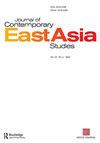Laos-China infrastructure cooperation: legitimation and the limits of host-country agency
IF 1.4
Q1 AREA STUDIES
引用次数: 0
Abstract
Focusing on Laos’s engagement with China’s Belt and Road Initiative (BRI), this article examines the role and limits of host-county agency toward foreign-backed infrastructure connectivity cooperation. Based on fieldwork observations, semi-structured interviews, and scholarly literature, this paper finds that Laos’s agency toward the BRI has been mixed and uneven, with both active and passive elements. That is, while Laos actively initiated cooperation with China on the Vientiane-Boten railway and other projects, during the negotiation and implementation phases it was at times passive and acquiescent. While the Lao government has attempted to shape the processes, it is unclear how successful these attempts have been. Although the Lao authorities have pursued pragmatic planning in order to benefit more fully from ventures with China, it is too early to determine actual progress. We argue that such patterns of agency result from internal and external dynamics. Internally, while Lao elites’ performance legitimation has been the main driver motivating the small state’s embrace of the BRI, its capacity to gather feedback, act responsively, and correct its course of cooperation has been limited by its one-party political system and near absence of societal agency. Externally, a lack of alternative infrastructure partner has further constrained Laos’s developmental options. Looking ahead, external partners have an important role to play.老中基础设施合作:合法性与东道国代理的局限性
本文以老挝参与中国的“一带一路”倡议(BRI)为重点,探讨了东道国机构在外国支持的基础设施互联互通合作中的作用和局限性。基于实地考察、半结构化访谈和学术文献,本文发现老挝对“一带一路”的代理是混合和不平衡的,既有主动因素,也有被动因素。也就是说,虽然老挝在万象—磨丁铁路等项目上积极发起与中国的合作,但在谈判和实施阶段,老挝有时是被动和默许的。虽然老挝政府试图影响这一进程,但目前尚不清楚这些尝试是否成功。尽管老挝当局追求务实的规划,以便更充分地从与中国的合资企业中获益,但现在确定实际进展还为时过早。我们认为,这样的代理模式是由内部和外部动力造成的。在国内,虽然老挝精英的表现合法化是推动这个小国接受“一带一路”倡议的主要动力,但其收集反馈、采取响应性行动和纠正合作进程的能力受到一党政治体制和几乎缺乏社会机构的限制。对外,缺乏可替代的基础设施合作伙伴进一步限制了老挝的发展选择。展望未来,外部合作伙伴将发挥重要作用。
本文章由计算机程序翻译,如有差异,请以英文原文为准。
求助全文
约1分钟内获得全文
求助全文
来源期刊

Journal of Contemporary East Asia Studies
Social Sciences-Cultural Studies
CiteScore
2.50
自引率
0.00%
发文量
10
审稿时长
6 weeks
 求助内容:
求助内容: 应助结果提醒方式:
应助结果提醒方式:


